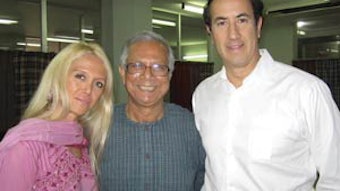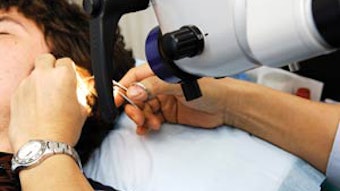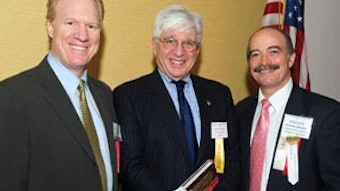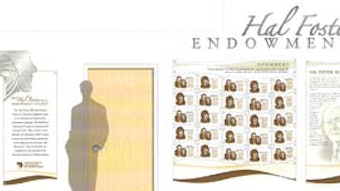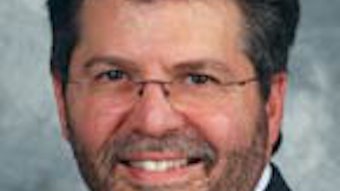Private Payer Advocacy: Humana’s Coverage for Mini-CT Scans
Several years ago, we learned from a member about Humana’s problematic medical coverage policy for mini-CT. Although the Food and Drug Administration (FDA) had approved mini-CT scans, Humana was not willing to cover them. Initially, its policy on mini-CT scans stated: “Humana members may not be eligible under the Plan for mini-CT scan. This technology is considered experimental/investigational as it is not identified as widely used…” Therefore, we began following the issue and worked with several practices to advocate for coverage of mini-CT scans and other cone-beam, limited-use CT imaging modalities for sinonasal CT imaging procedures. In November 2009, the AAO-HNS’ Health Policy staff and some members including Gavin Setzen, MD, chair of the new Imaging Committee, as well as representatives of the Association of Otolaryngology Administrators, American Medical Association, Kentucky Medical Association, Greater Louisville Medical Society, Intersocietal Commission for the Accreditation of Computed Tomography Laboratories (ICACTL), and Xoran Technologies, held a conference call with a number of Humana leaders to discuss the policy and argue for appropriate coverage for mini-CT scans. Consequently, the insurer expanded coverage for the mini-CT to “diagnosis uncertain AND suspected acute frontal or sphenoidal sinusitis.” Unfortunately, the revised policy at that time was limited in its coverage for mini-CT because it did not cover mini-CT scans for “immunodeficient patients (at high risk for invasive fungal sinusitis) OR orbital complications and/or neurologic deficit; OR recurrent acute or chronic rhinosinusitis; OR sinonasal obstruction; OR sinonasal polyposis.” Building on our momentum from this advocacy effort, in August 2010, AAO-HNS and other representatives on the 2009 conference call held another follow-up conference call with Humana. The call was well-received and Humana Medical Directors indicated that support from the Academy for use of mini-CT for sinonasal CT imaging procedures based on medical necessity would likely result in reversal of the policy. In an October 2010 Academy comment letter to Humana, we provided rationale based on evidence-based literature (including our recently approved policy statement, Point of Care Imaging in Otolaryngology at http://www.entnet.org/Practice/policyReimburseImagingStudies.cfm) supporting safety, reduced costs, and convenience to patients that the device presented. Specifically, we reiterated that since the FDA had already approved mini-CT devices, Humana should not deem them as experimental or investigational. The AAO-HNS also specifically requested that Humana cover mini-CT scans for the conditions (listed above) for which Humana previously excluded coverage. Our efforts paid off. In November 2010, we received a positive response from Humana stating it would reverse its coverage position for mini-CT scans. In this letter, Humana agreed to cover immunodeficient patients (at high risk for invasive fungal sinusitis), orbital complications and/or neurologic deficit, recurrent acute or chronic rhinosinusitis, sinonasal obstruction, and sinonasal polyposis. This major win would not have been possible without the help of all our member volunteers who rigorously and diligently had open dialogue with Humana representatives. This experience again echoes how each member can be his or her own advocate by taking advantage of the private payer advocacy resources on our website and using the following steps when you encounter coverage issues: Determine whether the insurer denied the claim because of billing errors. (Please contact the Academy’s coding hotline at 800-584-7773; this is a FREE service for members.) Determine whether you submitted the appropriate supporting medical documentation. After you have determined there was no billing or documentation error, please appeal the denial, using the Academy’s resources (http://www.entnet.org/Practice/Private-Payer-Resources.cfm). Report the issue to your state medical or otolaryngology society after you determine the issue is state-wide. If you determine that the coverage issue is nationwide, contact the Academy’s Health Policy department at Healthpolicy@entnet.org which will forward the issue on to the Physician Payment Policy (3P) workgroup for review and determining next steps to pursue. To learn more about the Academy’s latest private payer advocacy efforts, check our weekly e-newsletter, the News, the website (http://www.entnet.org/Practice/News-and-Updates-from-Private-Payers.cfm) and the Bulletin or contact Healthpolicy@entnet.org.
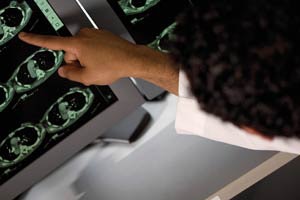
Therefore, we began following the issue and worked with several practices to advocate for coverage of mini-CT scans and other cone-beam, limited-use CT imaging modalities for sinonasal CT imaging procedures.
In November 2009, the AAO-HNS’ Health Policy staff and some members including Gavin Setzen, MD, chair of the new Imaging Committee, as well as representatives of the Association of Otolaryngology Administrators, American Medical Association, Kentucky Medical Association, Greater Louisville Medical Society, Intersocietal Commission for the Accreditation of Computed Tomography Laboratories (ICACTL), and Xoran Technologies, held a conference call with a number of Humana leaders to discuss the policy and argue for appropriate coverage for mini-CT scans. Consequently, the insurer expanded coverage for the mini-CT to “diagnosis uncertain AND suspected acute frontal or sphenoidal sinusitis.” Unfortunately, the revised policy at that time was limited in its coverage for mini-CT because it did not cover mini-CT scans for “immunodeficient patients (at high risk for invasive fungal sinusitis) OR orbital complications and/or neurologic deficit; OR recurrent acute or chronic rhinosinusitis; OR sinonasal obstruction; OR sinonasal polyposis.”
Building on our momentum from this advocacy effort, in August 2010, AAO-HNS and other representatives on the 2009 conference call held another follow-up conference call with Humana. The call was well-received and Humana Medical Directors indicated that support from the Academy for use of mini-CT for sinonasal CT imaging procedures based on medical necessity would likely result in reversal of the policy.
In an October 2010 Academy comment letter to Humana, we provided rationale based on evidence-based literature (including our recently approved policy statement, Point of Care Imaging in Otolaryngology at http://www.entnet.org/Practice/policyReimburseImagingStudies.cfm) supporting safety, reduced costs, and convenience to patients that the device presented. Specifically, we reiterated that since the FDA had already approved mini-CT devices, Humana should not deem them as experimental or investigational. The AAO-HNS also specifically requested that Humana cover mini-CT scans for the conditions (listed above) for which Humana previously excluded coverage.
Our efforts paid off. In November 2010, we received a positive response from Humana stating it would reverse its coverage position for mini-CT scans. In this letter, Humana agreed to cover immunodeficient patients (at high risk for invasive fungal sinusitis), orbital complications and/or neurologic deficit, recurrent acute or chronic rhinosinusitis, sinonasal obstruction, and sinonasal polyposis.
This major win would not have been possible without the help of all our member volunteers who rigorously and diligently had open dialogue with Humana representatives. This experience again echoes how each member can be his or her own advocate by taking advantage of the private payer advocacy resources on our website and using the following steps when you encounter coverage issues:
- Determine whether the insurer denied the claim because of billing errors. (Please contact the Academy’s coding hotline at 800-584-7773; this is a FREE service for members.)
- Determine whether you submitted the appropriate supporting medical documentation.
- After you have determined there was no billing or documentation error, please appeal the denial, using the Academy’s resources (http://www.entnet.org/Practice/Private-Payer-Resources.cfm).
- Report the issue to your state medical or otolaryngology society after you determine the issue is state-wide.
- If you determine that the coverage issue is nationwide, contact the Academy’s Health Policy department at Healthpolicy@entnet.org which will forward the issue on to the Physician Payment Policy (3P) workgroup for review and determining next steps to pursue.
To learn more about the Academy’s latest private payer advocacy efforts, check our weekly e-newsletter, the News, the website (http://www.entnet.org/Practice/News-and-Updates-from-Private-Payers.cfm) and the Bulletin or contact Healthpolicy@entnet.org.
